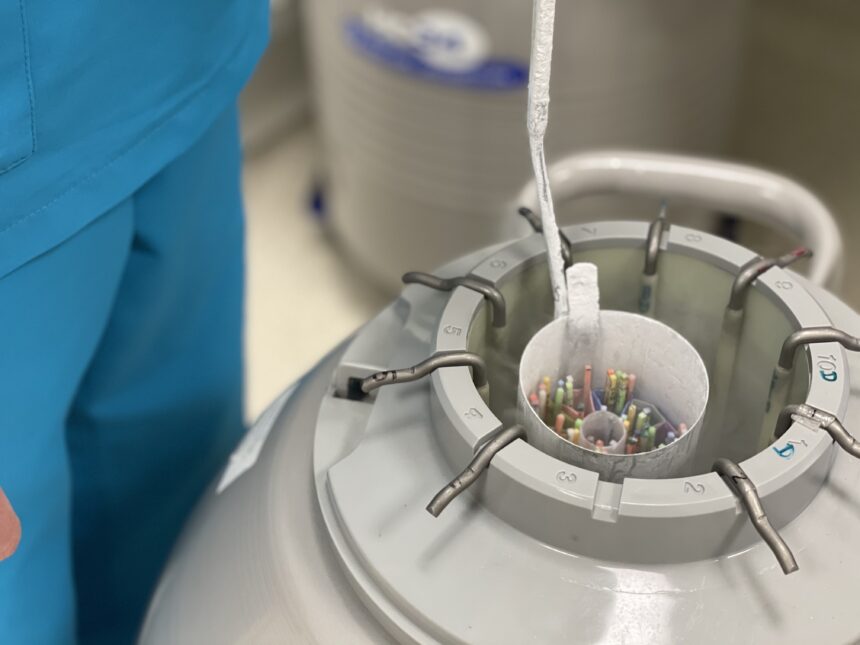
Male infertility: has there been an increase in cases over the last few years?
Nowadays, it is relatively common to have friends or family members with problems in achieving pregnancy, and even we can be affected at any given time.

Wanting but not being able to
There is a word that clearly defines the workings and dynamics of the HC Fertility centre: humanity. Our team is comprised of different types of professionals, but above all, we are people who care about people.
Main reasons of infertility that affect men and women
Nowadays infertility is a truly worrying problem. The World Health Organization (WHO) has itself declared it a disease as fertility problems are now estimated to affect 1 in 6 couples of reproductive age.

Research applied to Reproductive Medicine
Achieving pregnancy is a synonym of hope, and even more so in the case of patients who were forced to resort to the help of assisted reproduction in order to conceive a baby.

Implantation failures
In recent years, thousands of women and couples have resorted to assisted reproduction techniques to achieve pregnancy. One of the main factors is the age at which, on many occasions, patients attempt to conceive. Unfortunately, the more advanced the age is, the more incompatible it becomes with a natural pregnancy. It is at this point that many patients seek the help of the clinics to diagnose the problem that hinders pregnancy and begin the most appropriate treatment to achieve it.

The quest for a second pregnancy
As a general assumption, when a woman has already managed to get pregnant and have a child, we believe that she does not present any fertility-related problems. Although this is often the case, the truth is that the body of a woman can change over the years for a variety of reasons.

Why are we postponing motherhood more and more?
Discussing about assisted reproduction is becoming more common in many of the conversations we may have within our circle of friends and with our own families, and part of this is due to the fact that the number of couples and women who resort to clinics to achieve pregnancy is on the rise. Unlike a few years ago, when mentioning the impossibility of achieving pregnancy and having to resort to a specialist was almost a taboo subject, today it is becoming an increasingly normalized situation. As for the reasons behind this scenario and the reasons why many women do not achieve pregnancy naturally, there is no doubt that the age at which we seek pregnancy is the main factor contributing to this increase in the number of patients who resort to assisted reproduction clinics.

PRESERVE YOUR FERTILITY BY SAVING YOUR EGGS
“If we undergo an IVF treatment when we are 40 using eggs that were frozen when we were 32, we will have the same chances of pregnancy as if we were still 32”.

5 most common causes of infertility
Have you been trying to conceive a baby for a long time, but you are not successful? … You should seek help before feeling discouraged and worried. Here we will focus on female infertility, but male infertility can also be an x factor for couples seeking pregnancy and needs to be valued. Female fertility can be affected by several reasons, here we will tell you the 5 most frequent factors:

Which are the basic tests to determine female fertility?
Hormonal analysis This is one of the main tests performed to find out whether there are any fertility problems in a woman or not. Through a blood test we check the main hormones, such as: FSH, LH, prolactin, estradiol, progesterone and anti-Müllerian hormone (AMH). This test allows us to know if there are hormonal problems causing an alteration in the menstrual cycle and find out about the woman’s ovarian reserve. Ultrasound In a female fertility study a transvaginal ultrasound is performed, to observe the uterus and ovaries, verifying that there is no uterine malformation or any other anatomical complications, that may lead to fertility problems, and also an antral follicle count (RFA) will be performed during the first days of the cycle. The results of the antral follicle count and the AMH value will tell us about the status of the ovarian reserve. Karyotype Although this is not one of the basic tests, it is advisable, in order to evaluate the female´s chromosomal structure and discard any possible chromosomal alterations that may be the origin of sterility or infertility. It is carried out from a blood extraction (the same as for a regular blood analysis), for which it is not necessary to be fasting. It will take between 15 to 20 days for the results to be ready.



